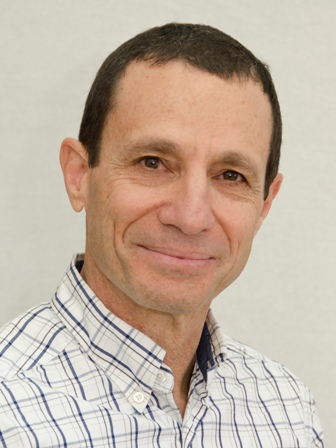Talk Abstract
Alternative splicing is an evolutionarily conserved mechanism that increases transcriptomic and proteomic diversity by allowing the generation of multiple mRNA products from a single gene. It is highly prevalent as more than 95% of human multi-exonic genes undergo alternative splicing. However, it is largely unknown how the splicing machinery locates short exons embedded between long flanking intron sequences and splices them out to generate a mature mRNA molecule. In human, a large fraction of introns have grown to thousands of nucleotides in length during evolution. By contrast, exons are under selective pressure to maintain a small range of size, with an average length of approximately 147 nucleotides. This tight selection on exon length exists in all multicellular organisms and is likely driven by different packing of exons and introns at the DNA level: Exons have higher nucleosome occupancy levels than do flanking introns, and are apparently under selection to maintain a length which corresponds to the DNA fragment protected by one nucleosome. My talk will focus on the link between chromatin structure, epigenetic markers and regulation of alternative splicing.
I will also present a new method we developed to integrate physical interaction, gene expression and alternative splicing data to construct the largest map of transcriptomic and proteomic interactions leading to cancerous splicing aberrations defined to date and identify driver pathways therein.
Speaker Biography
Dr. Ast received his PhD in Biochemistry from the Weizmann Institute in 1993. He then spent six years at Yale University Medical School as a postdoctoral fellow and research associate. In 1999 he joined the Tel Aviv University Medical School, since 2008 as a full professor, as chair of the Human Molecular Genetics and Biochemistry Department from 2009 to 2013, and as head of the graduate school (with over 1000 students) since 2010. He has supervised approximately 50 students (including 14 current students) and has been awarded Best Lecturer of the Faculty of Medicine (2012) and elected for Excellent Lecturer of preclinical studies (2006, 2008) at Tel Aviv University.
Dr. Ast is recognized world-wide as an expert on RNA splicing and its relation to epigenetics and evolution. He has giving invited talks at numerous international conferences, including the 2012 Riboclub Meeting and a keynote address at ISMB/ECCB 2013. He has published over 80 scientific papers, nearly all in top journals and many with hundreds of citations each. His scientific accomplishments have brought numerous awards including the Yamagiwa-Yoshida Memorial International Cancer Fellowship (2006), an Excellence grant from the Israel Cancer Association, a special prize for scientific achievements by the Rector of Tel Aviv University (2003), Sachter Award (2002), Rekanati Fellow (2002) Leukaemia Research Foundation New Investigator Award (2000), and a Human Frontier Science Program Postdoctoral Fellowship (1996–1998). In 2009 he was elected as a European Molecular Biology Organization (EMBO) Member 2012 and in 2012 he become chair of the Israel Biochemistry and Molecular Biology Society.

